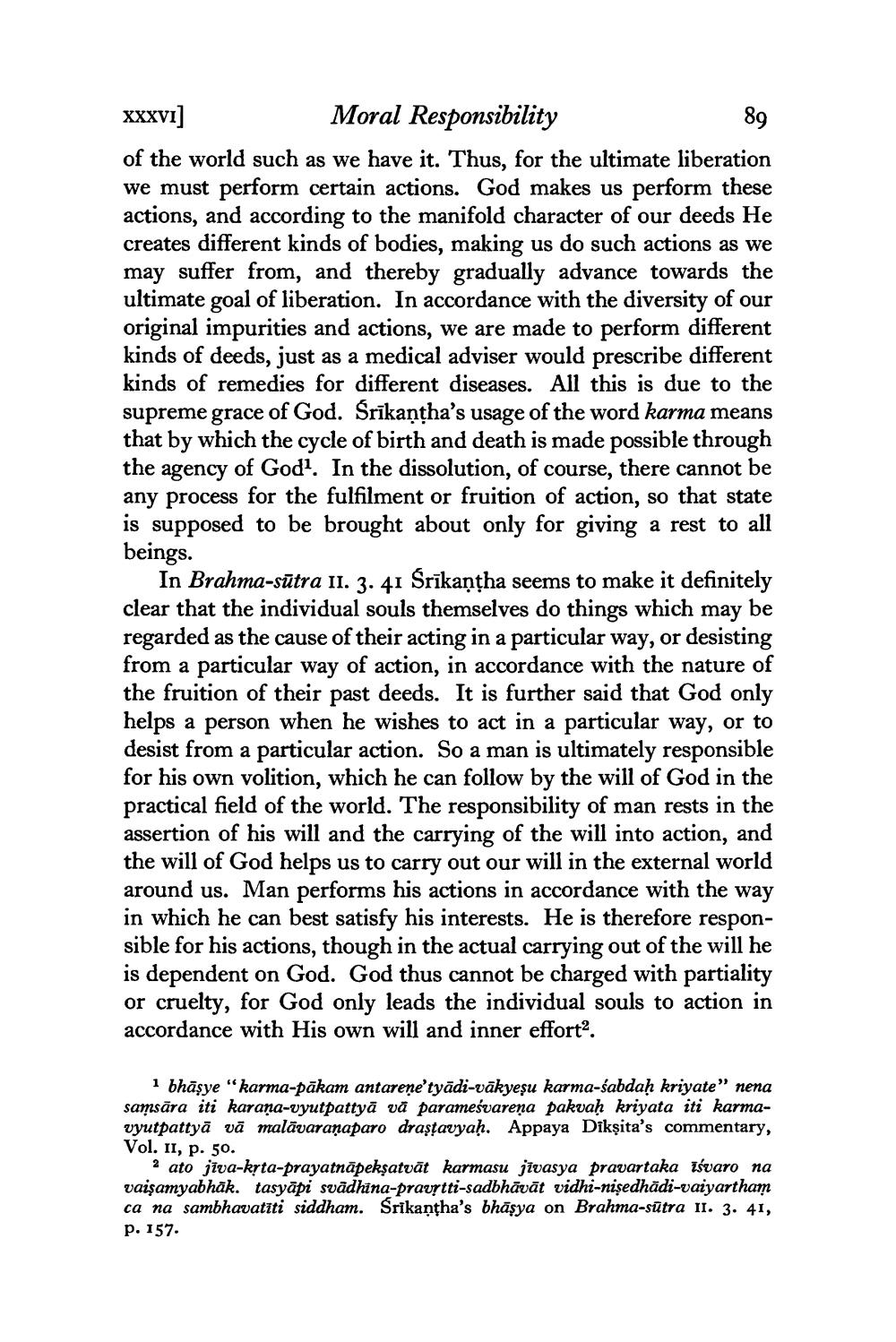________________
89
XXXVI]
Moral Responsibility of the world such as we have it. Thus, for the ultimate liberation we must perform certain actions. God makes us perform these actions, and according to the manifold character of our deeds He creates different kinds of bodies, making us do such actions as we may suffer from, and thereby gradually advance towards the ultimate goal of liberation. In accordance with the diversity of our original impurities and actions, we are made to perform different kinds of deeds, just as a medical adviser would prescribe different kinds of remedies for different diseases. All this is due to the supreme grace of God. Srikantha's usage of the word karma means that by which the cycle of birth and death is made possible through the agency of God'. In the dissolution, of course, there cannot be any process for the fulfilment or fruition of action, so that state is supposed to be brought about only for giving a rest to all beings.
In Brahma-sūtra II. 3. 41 Śrīkantha seems to make it definitely clear that the individual souls themselves do things which may be regarded as the cause of their acting in a particular way, or desisting from a particular way of action, in accordance with the nature of the fruition of their past deeds. It is further said that God only helps a person when he wishes to act in a particular way, or to desist from a particular action. So a man is ultimately responsible for his own volition, which he can follow by the will of God in the practical field of the world. The responsibility of man rests in the assertion of his will and the carrying of the will into action, and the will of God helps us to carry out our will in the external world around us. Man performs his actions in accordance with the way in which he can best satisfy his interests. He is therefore responsible for his actions, though in the actual carrying out of the will he is dependent on God. God thus cannot be charged with partiality or cruelty, for God only leads the individual souls to action in accordance with His own will and inner effort.
1 bhāşye "karma-pākam antarene'tyādi-vākyeşu karma-sabdaḥ kriyate" nena samsāra iti karana-vyutpattyā vā parameśvareņa pakvaḥ kriyata iti karmavyutpattyā vā malāvaranaparo draştavyah. Appaya Dikşita's commentary, Vol. II, p. 50.
? ato jīva-kyta-prayatnāpekṣatvāt karmasu jivasya pravartaka īśvaro na vaişamyabhāk. tasyāpi svādhina-praurtti-sadbhāvāt vidhi-nişedhădi-vaiyartham ca na sambhavatīti siddham. Srikantha's bhāşya on Brahma-sūtra II. 3. 41, p. 157.




